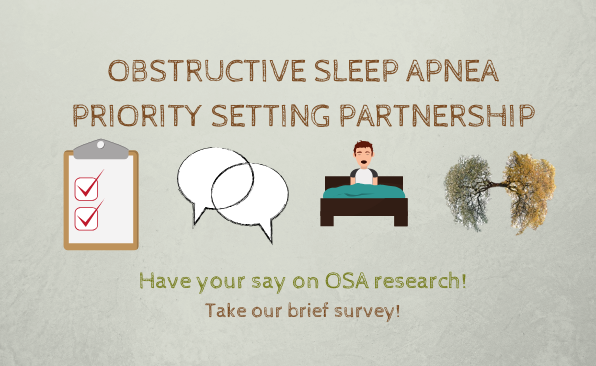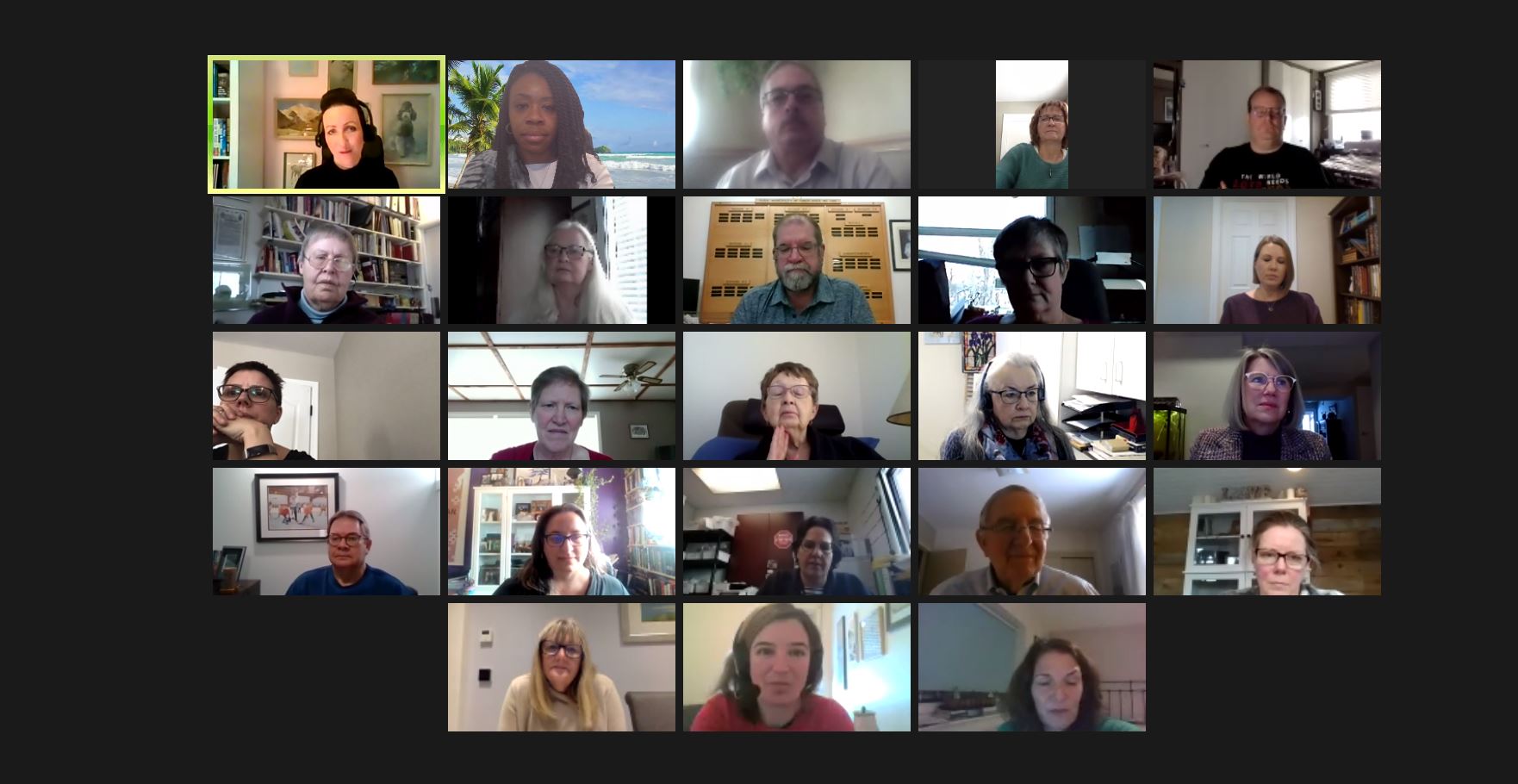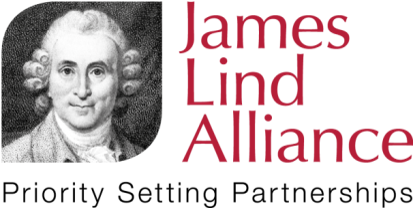What is a Priority Setting Partnership (PSP)?

Priority Setting Partnerships (PSPs) enable clinicians, patients and carers to work together to identify and prioritize evidence uncertainties in particular areas of health and care that could be answered by research. While the James Lind Alliance (JLA) facilitates these partnerships, the funding and organizing is done by the PSP itself.
Focusing on specific conditions or healthcare settings, the JLA facilitates PSPs which:
- bring patient, carer and clinician groups together on an equal footing
- identify evidence uncertainties (questions which cannot be answered by existing research) which are important to all groups
- work with all groups to jointly prioritize identified uncertainties
- produce a final list (often a Top 10) of jointly agreed research priorities, publicize them widely, and make sure that other uncertainties are recorded and available for researchers and research funders to access
- provide a rare and valuable opportunity for patients and clinicians to shape the health research agenda.
Purpose
What is the purpose of the RRC PSP?
At our first annual knowledge translation event in May 2019, we invited patients and caregivers to an all-day event where they would have the opportunity to engage with respirologists and lung health professionals to have their questions answered. The feedback at that event was overwhelmingly positive and, requests for future KT activities identified obstructive sleep apnea (OSA) as the desired area of focus.
We recognize that OSA has a high prevalence here in Canada and, despite the prevalence of OSA, it remains an under-diagnosed public health concern. Untreated OSA has been associated with increased utilization of health care, reduced work performance (absence from work and lost productivity, workplace errors, costs of illness-related accidents), and increased occupational and motor vehicle accidents. Furthermore, while established diagnostic and therapeutic modalities are available, patient adherence to treatments such as Continuous Positive Airway Pressure (CPAP) can be as low as 50% over the course of a year, largely as a result of patient discomfort. There have been calls for increased understanding of the role of psychosocial variables in treatment adherence.
The objective of our PSP is to identify unanswered questions about adult obstructive sleep apnea with regards to treatment, self-management and adherence.
Click here to view a CTV interview of Steering Committee Members Dr. Donna Goodridge and Dr. Robert Skomro.
Patient Partner Participation
Type of Involvement and Feedback
The final stage of the PSP was a final workshop involving a series of facilitated group discussions between people with lived experience of OSA and healthcare professionals. Participants worked together to agree on the top 10 questions for future research on OSA. Our PSP recruited 17 patient partners and clinicians who participated in different phases of the JLA process to take part in our final workshop. The workshop was held over two days in January 2021 in an online format. Our top 10 will be presented to the public in the coming months.
Some of our participant feedback:
"It was a wonderful experience to participate in. Learned lots about prioritizing with a group of people, wonderful people to participate with, the facilitators were professional - fair, friendly and inclusive."
"Facilitated efficiently with good use of time. Length of time was appropriate - would not have needed any longer time for discussions."
"I really enjoyed being a part of the workshop and was honoured to assist with the priority setting."
"The process followed to arrive a the top 10 was fair and included thoughtful analysis on every group's part."

Our Steering Group
The Obstructive Sleep Apnea (OSA) Steering Group is comprised of an engaged group of clinicians, patients, caregivers and community stakeholders all with an interest in addressing the treatment issues related to OSA. The steering group is responsible for ensuring representation of kep groups and issues surrounding OSA and meets bi-monthly to discuss such activities as data collection, community engagement and strategies for promoting inclusivity.
Members
Katherine Cowan - JLA Advisor
Dr. Donna Goodridge - Director, Respiratory Research Centre & JLA Chair
Dr. Robert Skomro - Respirologist
Dr. Mark Fenton - Respirologist
Candace Skrapek - Patient & Family Advisor
Karen Webb - Patient & Family Advisor
Bill Hails - Patient & Family Advisor
Bill Schaffel - Patient & Family Advisor
Dave Parkalub - Patient & Family Advisor (Lung Association of Saskatchewan)
Kendra Ulmer, RN - Clinician (Canadian Centre for Health & Safety in Agriculture)
Jaimie Peters, RN - Lung Association of Saskatchewan
Dawn Demchenko, RN - LiveWell Chronic Disease Management
Myrna Briggs - Patient & Family Advisor
Andre Letendre - Cultural Systems Advisor, Saskatchewan Health Authority
Sarah Fang - Saskatchewan Centre for Patient Oriented Research - JLA Co-Lead
Britney Duncan - Respiratory Research Centre - JLA Coordinator

![]()
Top 10 Research Priorities
Top 10 Research Priorities for Obstructive Sleep Apnea - SK
- How can a diagnosis of Obstructive Sleep Apnea (OSA) be made easier to obtain?
- How can treatment of obstructive sleep apnea (OSA) be more affordable?
- How can access, coordination, and quality of public services be improved for persons with obstructive sleep apnea (OSA)?
- What are important considerations when treating a patient with obstructive sleep apnea (OSA) who has other chronic health conditions?
- How can obstructive sleep apnea (OSA) services to rural areas be improved?
- How can obstructive sleep apnea (OSA) services to Indigenous peoples be improved?
- Are there other therapies that could be used along with Continuous Positive Airway Pressure (CPAP) to improve obstructive sleep apnea (OSA) and under what circumstances?
- How can the treatment and care of obstructive sleep apnea (OSA) in long-term and residential care settings be improved?
- How do lifestyle changes (such as weight loss, exercise and stress reduction) affect the need for ongoing Continuous Positive Airway Pressure (CPAP) treatment?
- How often should Continuous Positive Airway Pressure (CPAP) therapy be re-evaluated by a health care provider?
Sleep Apnea Videos
Sleep Apnea Informational Videos
The RRC worked with a team of patient partners from our advisory group and volunteers from the JLA final workshop as well as LungSask to develop 3 short animated videos. These videos acknowledge and address some of the questions submitted from our JLA PSP that were already answered by research but, often not made readily available to OSA patients and families.

